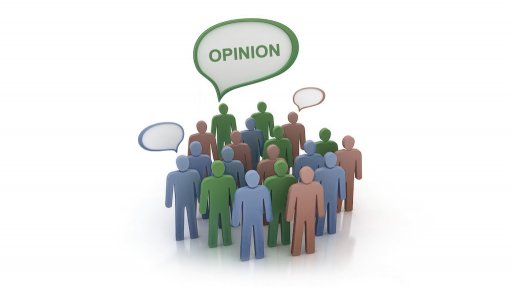
From HIV/AIDS, apartheid and Covid-19, each generation has a fair share of non-believers, writes our award-winning columnist Bhekisisa Mncube
Dear Mr President Cyril Matamela Ramaphosa. Can we talk man to man? I mean, as equals, not the imagined intergenerational dialogue mumbo jumbo that I have been pursuing since February last year. Never mind.
Mr President, I want us to talk about hesitancy this week: vaccine hesitancy, struggle hesitancy, apartheid hesitancy and democracy hesitancy.
I am awe-struck by your recent letter to the nation wherein you exhorted the virtues of young people, ama2000, as it were. You sounded like a leader in touch with the masses or his feminine side. Mr President, you went all lyrical on us. You even invoked Frantz Fanon’s poignant words to the effect that “each generation must discover its mission, fulfil it or betray it, in relative opacity”.
You went to town about how ama2000 are turning out in large numbers to get the Covid-19 vaccine. You said their actions fill you with great pride.
In 1994, young people of my generation stood in those long queues to vote for the first time. We carried on our broad shoulders the dreams and aspirations of the whole nation.
Me too; I am filled with gratification to know that another cohort of young people is taking up the cudgels to defend our “way of life” amid the Covid-19 pandemic. It warms my heart that ama2000 are stepping up to the plate to change the narrative of a country overrun with a domkop vaccine hesitancy crew.
Clearly, Ama2000 don’t believe the balderdash that the Covid-19 vaccines are infused with the mark of the beast (666) and are 5G enabled.
Yet among the same young people, a certain class suffers from democracy hesitancy; they don’t vote. This group of young people believes in the grand conspiracy that the “political game is rigged”.
Mr President, I am not surprised at all. South Africa has a history of young people changing the trajectory of our politics.
Think of the 1976 generation. It is the adults (today’s vaccine-hesitant group) who betrayed their dream of total emancipation.
Not to mention the Nelson Mandela generation that founded the ANC Youth League, and railed against the use of petitions and polite language in dealing with the illegitimate white regime. If it wasn’t for Mandela and the crew, our leaders would still be writing courteous letters to plead our case with Her Majesty the Queen of England.
During various epochs of the struggle against the apartheid regime, there was an abundance of struggle hesitancy among a particular age group of black men. I postulate that the same group of black men who exhibited struggle hesitancy, today refuse to take the Covid-19 vaccine, despite massive evidence that they work and prevent hospitalisation and deaths.
For instance, my father believed in the invincibility of the white man. He warned me in the 1980s that a white man is “too clever” and encouraged me to surrender my being to the white man. I refused. My father and men of his generation had advanced levels of struggle hesitancy. He tried the Covid-19 vaccine hesitancy stunt, and it was thwarted by his grandchildren. Just like me, he is now fully vaccinated.
The Covid-19 vaccine hesitancy brigade comes from the same stock as the HIV/Aids denialists of the bygone era. It is the same WhatsApp group that not so long ago refused to use condoms to stop the spread of HIV/Aids or take the drugs — antiretroviral therapy (ART).
Equally, we have an impressive history of hesitancy among a specific group of white men. The vaccine hesitancy among white men doesn’t shock me at all.
The white men refusing to take the Covid-19 vaccines today are the same age group that believed that the ANC was a communist project that had to be stopped at all costs.
They believed in the government’s state-of-the-art democracy hesitancy programme.
They were hoodwinked into believing in the apartheid government’s grand propaganda that the ANC’s presence in the country, or in government, would adversely affect the white man’s “way of life”. By way of life, they meant exclusive rights to buy and drink Klipdrift and Coke and eat biltong.
Another fear was about black men wooing white women. Eish, they might have had a point there.
Most white women also had apartheid hesitancy; they leaned towards ameliorating the suffering of black people even though they couldn’t change the political system. Think of the Black Sash stock of white women.
Till next week my man. “Send me.”
This Letter to Mahlamba Ndlopfu is written by Bhekisisa Mncube, a former senior Witness political journalist, the 2020 regional winner in the Opinion category of the Vodacom Journalist of the Year Award, and author of The Love Diary of a Zulu Boy, a memoir.
This opinion piece was first published in the Witness/News24.